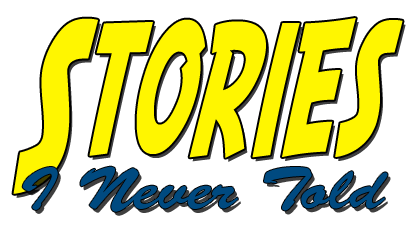In writing “How It Happened: Hero-Type,” I alluded to the fact that, after Boy Toy, I’d planned on writing a book about Fanboy’s best friend, Cal Willingham.
Cal, for those of you who haven’t read The Astonishing Adventures of Fanboy & Goth Girl 1, is black.
Yes, I — a white dude — was planning on writing a book from the POV of a black kid. And not just “from the POV” of a black kid, but about what it was like to be a black kid in an overwhelmingly white town.
In Fanboy, there’s a casual aside where Fanboy comments that there are maybe ten black kids at his school. And he notices that Cal acts differently around him than he does around his (Cal’s) jock friends. This was going to be the fulcrum of the story, the notion of duality in black lives, the way culture and society forces Cal to be two different versions of himself.
So, not just about a black kid, but about the black experience.
I suppose the big question is: What in the world possessed me to think that I could or should write a book about the black experience?
I dunno, man. Looking back ten years, it’s tough to put myself in that same mind space. But I’ll take a stab at it.
I guess first we have to ask why Cal was black in Fanboy in the first place. Simple answer: The book was very autobiographical and when I was Fanboy’s age, my best friend in the world wasn’t white. 2 He wasn’t black, but he was a person of color and rather than explain my best friend’s ethnic heritage, it just seemed more sensible at the time to make Cal black. Also because, y’know, fiction. Autobiographical, yes, but still make-believe. 3
Someone once pointed out to me that my work generally tends to be about outcasts. From childhood through young adulthood, I felt excluded and ignored, and my greatest empathy developed towards those who were — for whatever reason — outcasts. And in a small-town like the one I grew up in, anyone who wasn’t white definitely qualified.
As a kid, I watched my best friend navigate the lily-white waters of our hometown and our high school. I didn’t understand it, but I saw it. Then, as an adult, I began to develop a sense of the toll this took on him…and on other people of color.
It was summed up quite nicely by Dave Chappelle on Inside the Actors Studio (coincidentally, airing right around the time I was finishing up Boy Toy and thinking about The Black Kid):
Every black American is bilingual, all of ’em. We speak street vernacular, and we speak job interview. There’s a certain way I gotta speak to have access. 4
Preach, brother, I thought.
I wanted to write The Black Kid for my best friend, the boy he’d been and the man he’d become. For my black friends who didn’t feel like they could ever just be themselves. For young black readers just figuring it out. For white readers who didn’t get it.
And hell, now I wanted to write it for Dave Chappelle, too!
Someone out there is saying, “How dare he even contemplate writing that book! It’s presumptuous and racist even to consider it!”
And someone else is saying, “How could he not write that book! It’s an abrogation of his duty to diversify the medium!”
Yeah, OK. Given that, why didn’t I write the book?
In the end, I didn’t write it because… Well, because it just drifted away. I recounted recently why Hero-Type was my third book. What I didn’t mention there was this: Hero-Type was the first book in a two-book deal. And for reasons I won’t get into here and now (if ever), I feared this would actually be my last book deal. So I had one more book and I wanted to give the world Goth Girl Rising, the sequel everyone was waiting for.
Obviously, that deal wasn’t my last one, but… Colleen’s schedule made it necessary to do Mangaman next. And I also agreed to Archvillain. And when the idea for I Hunt Killers popped into my head, I knew I had to jump on it right away.
The next thing you know, it’s almost ten years later, and I’m no longer in the headspace to write some of the stuff I came up with back then. This happens sometimes with writers. It’s not that you get blocked. It’s just that you get distracted into something else. And every book we write, every story we tell, changes us as storytellers. And sometimes we come out on the other side of a story changed enough that a story we were once burning to tell no longer works for us.
Maybe I changed politically. Maybe I was afraid of the repercussions of a white dude telling Cal’s story. Or maybe it was just that what had once seemed like a really cool story no longer seemed as cool. I don’t know.
All I know is this: When the dust settled, I suddenly didn’t know what the story was about any longer. I mean, I still knew the theme, the central nugget of it all. But “the duality forced on African-Americans” isn’t a plot. It’s just an idea, and ideas only work when they’re fleshed out. At the end of the day, I’m not the guy to flesh this one out, and that’s probably a good thing — I doubt I ever was.
- Shame on you!!!
- In fact, I still have the same best friend. Awww!
- My buddy, BTW, instantly recognized “himself” as Cal, and to this day demands royalties for most of Cal’s dialogue, which I cheerfully ripped straight from his fifteen-year-old mouth.
- Quotation from Genius.com.

